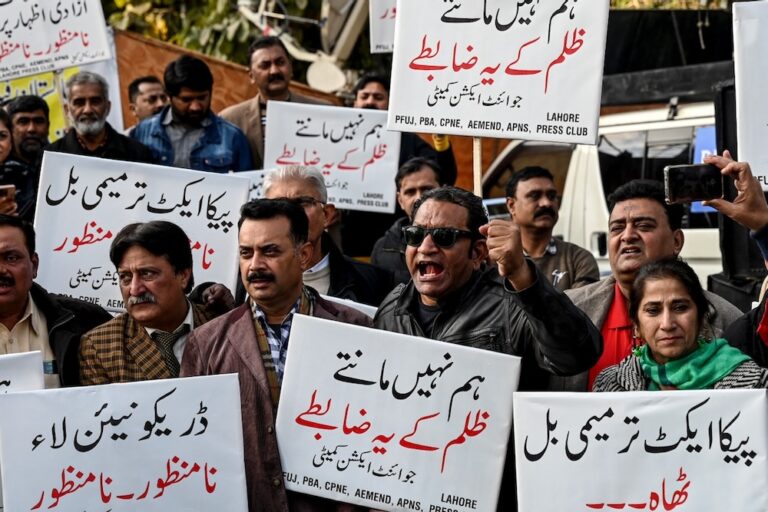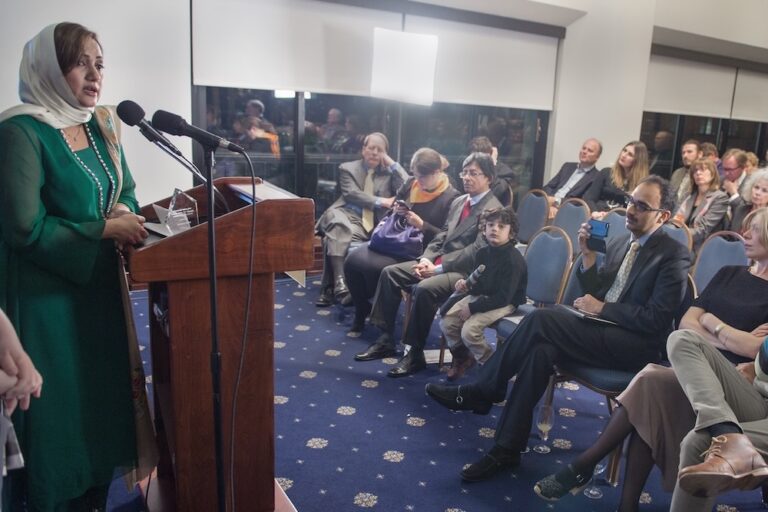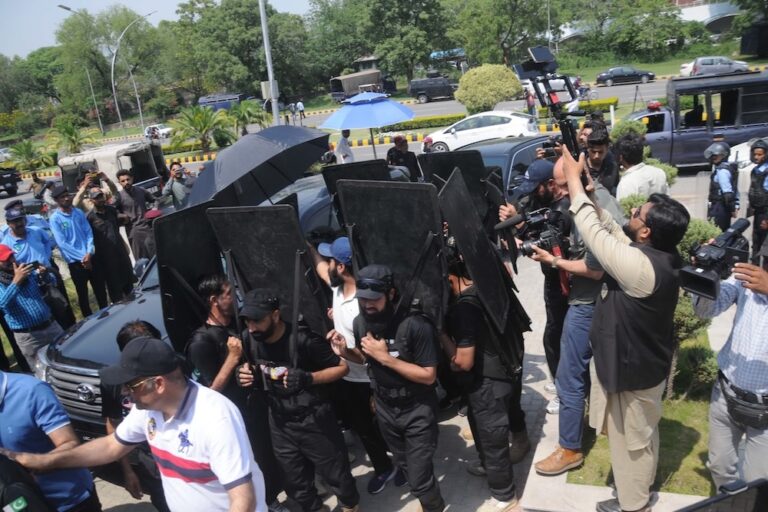(CPJ/IFEX) – After a two-hour hearing on 6 October 1999, the Chief Election Commissioner of Pakistan dismissed a petition that sought to exclude embattled editor Najam Sethi from political life by having him declared non-Muslim. The petition was filed on 24 June by legislator Syed Zafar Ali Shah, a member of Prime Minister Nawaz Sharif’s […]
(CPJ/IFEX) – After a two-hour hearing on 6 October 1999, the Chief Election
Commissioner of Pakistan dismissed a petition that sought to exclude
embattled editor Najam Sethi from political life by having him declared
non-Muslim.
The petition was filed on 24 June by legislator Syed Zafar Ali Shah, a
member of Prime Minister Nawaz Sharif’s ruling party. It sought to
disqualify Sethi, who is the founding editor of the Lahore-based English
weekly “The Friday Times”, from voting or running for office by requesting
that his name be struck from voters’ lists if he “does not fulfill the
requirements of a Muslim,” as defined in Article 260-3 of Pakistan’s
constitution.
The petition also charged that a speech that Sethi delivered before a New
Delhi audience on April 30 violated Articles 62(h) and 63-1(g) of the
constitution, which prohibits people whose speech or actions are deemed
prejudicial to the “ideology of Pakistan” from holding any elected office.
The Chief Election Commissioner, Muhammed Qadeer, did not elaborate on his
decision. Lawyers on both sides of the case presented documentary evidence
only.
Sethi was arrested at his home in Lahore on 8 May, and was detained for
nearly a month in the custody of Pakistan’s Inter-Services Intelligence
(ISI) agency, the army’s intelligence unit. Government statements indicated
that Sethi was being investigated for “anti-state” activities, including his
New Delhi speech, as well as alleged collaboration with Indian intelligence
operatives.
CPJ believes, however, that the Sharif government has been targeting Sethi
for his consistently critical coverage of official corruption, as well as
for giving an interview to a BBC documentary crew that was producing a
program on corruption within the prime minister’s family.
Sethi and his family have also been fighting more than two dozen cases of
tax evasion, all of which appear to be politically motivated.


